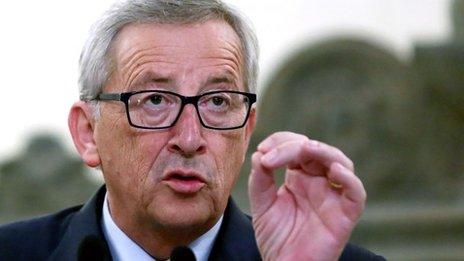Eurozone anxiety overshadows EU summit
- Published
- comments
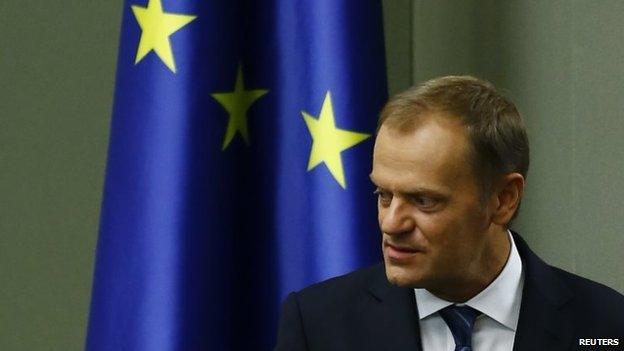
Polish Prime Minister Donald Tusk is a front runner for the role of European Council president
In the midst of cascading international crises, Europe's leaders are set to meet for an unusual Saturday summit.
The meeting has long been in the diary and its agenda is to decide on two of the EU's top jobs.
It is at once controversial. Will the leaders choose the best candidates for the jobs or will they play EU politics, looking to balance their choice to satisfy the interests of the main political groupings?
One Dutch MEP has already warned against making a selection on the basis "of the lowest common denominator of member states' wishes".
Almost certainly the meeting will be overshadowed by events in Ukraine but I would argue that the wrangling over the top jobs, although eye-catching, is not the priority for the EU.
The summit will try to choose a new president of the European Council to replace Herman Van Rompuy. The Council represents the interests of the member states and was the most influential forum at the acute moments of the eurozone crisis.
Difficult assignment
The front runner is Donald Tusk, the prime minister of Poland. He is from the centre-right and, most importantly, a close ally of German Chancellor Angela Merkel.
He and David Cameron had a public falling-out over benefit tourism. Mr Tusk said calls to limit access to UK benefits was "unacceptable".
But David Cameron is now backing Donald Tusk because he believes he would be an ally on economic reform, and that is central to Mr Cameron's plans to renegotiate the UK's relationship with Europe. He might, however, prove resistant to agreeing tougher rules for EU migrants.
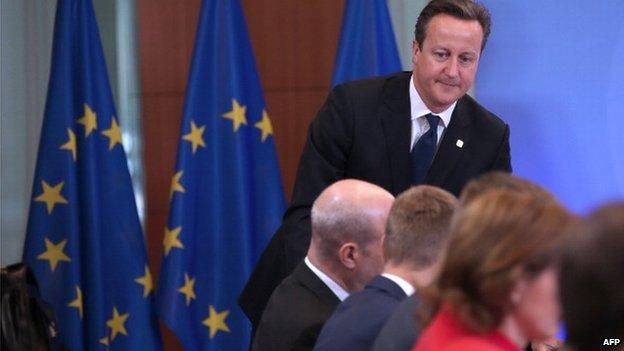
David Cameron will be looking for allies as he prepares to renegotiate the UK's relationship with the EU
If Mr Tusk stumbles, the summit may turn to Helle Thorning-Schmidt, the Danish prime minister, despite her protestations that she is not interested. It may, however, count against her that Denmark is not a member of the eurozone. The UK would be broadly supportive of her appointment.
The other key job is the high representative for foreign affairs, the post currently held by the British Commissioner, Catherine Ashton. It has proved a difficult assignment.
She has been criticised for her hesitancy on the public stage but praised too for her quiet diplomacy with Iran and in the Balkans.
Italian PM Matteo Renzi has been pushing hard for Italian Foreign Minister Federica Mogherini to take the job.
However, the Baltic States and Poland see her as inexperienced and too soft on Russia. There will be an argument over her appointment but Germany seems to agree that the job should go to a social democrat.
Other candidates include Polish Foreign Minister Radek Sikorski, the EU's External Aid Commissioner Kristalina Georgieva and Dutch Foreign Minister Frans Timmermans, an able communicator.
The UK does not have a strong position on this appointment, although it will be sensitive to any move to expand the EU's role in foreign policy.
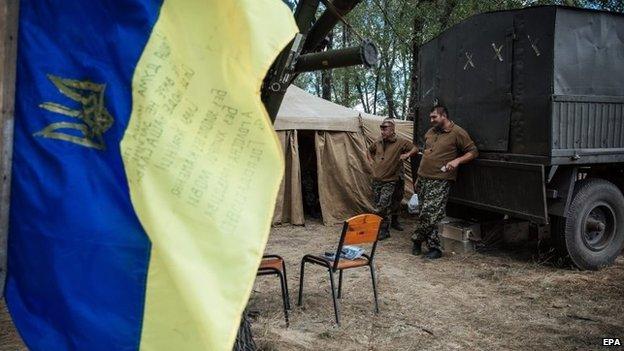
The new foreign policy chief will have a challenging portfolio, including the Ukraine crisis
These jobs have to be settled before the EU decides who should get the key posts in the EU Commission. That is arguably more important.
Fierce lobbying is already under way but the final choice belongs to the new President of the Commission, Jean-Claude Juncker.
There will be some discussions at this summit. The UK wants one of the key economic portfolios like the internal market, competition or trade.
David Cameron has proposed Jonathan Hill as the UK Commissioner. Which portfolio he gets will be an early test of the UK's influence having so strongly opposed Mr Juncker's appointment.
Eurozone weakness
The Commission jobs will be announced around 8 September. That should give us a clearer picture of the instincts of the new Commission and that will matter hugely for the UK as it tries to sell reform with calls for an EU which does less but better.
But much more important than post-filling is the stagnating eurozone economy. Not a day goes by without a new set of figures underlining the continuing weakness of the eurozone.
The latest figure was on inflation; it has dropped to a five-year low and the zone has edged closer to outright deflation. There are still 18.4 million people out of work.
This will be the central battleground of the autumn. As French President Francois Hollande said this week: "Europe is threatened by a long and possibly interminable stagnation if we do nothing."
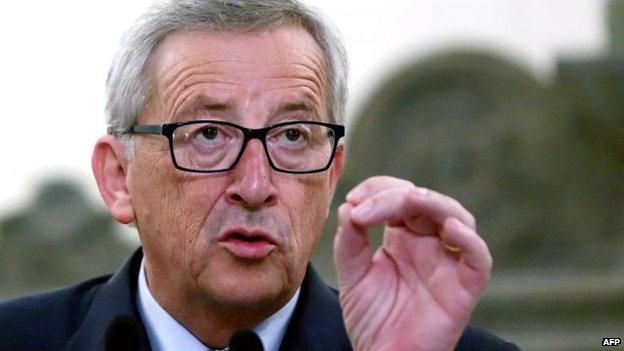
Jean-Claude Juncker will announce the European Commission jobs around 8 September
Privately, senior European officials and leaders agree that Europe could not put up with a lost decade, with high unemployment and low growth. It would strain the binds of the eurozone.
To be settled is an old argument; how much budgetary discipline is appropriate when the economies are so weak?
The French and the Italians believe that growth should be the priority. Both of them are pushing for more flexibility over reducing their deficits.
France, despite twice being given more time to bring its deficit down, will miss its target once again. Italy is struggling to keep its deficit under 3%.
The Germans and others are wary that more flexibility can translate into a backing away from unpopular reforms.
What France and Italy are trying to signal is that, in exchange for a new commitment to reform their labour markets, they need help with the deficit. There are some signals that both Mario Draghi and Angela Merkel might be receptive to this.
The countries will also be looking to the ECB for monetary stimulus but the key is restoring confidence so that consumers and businesses start spending and investing.
In the end the autumn will reveal whether the eurozone will embrace a more growth-orientated policy. That - more than names for jobs - is what really matters.
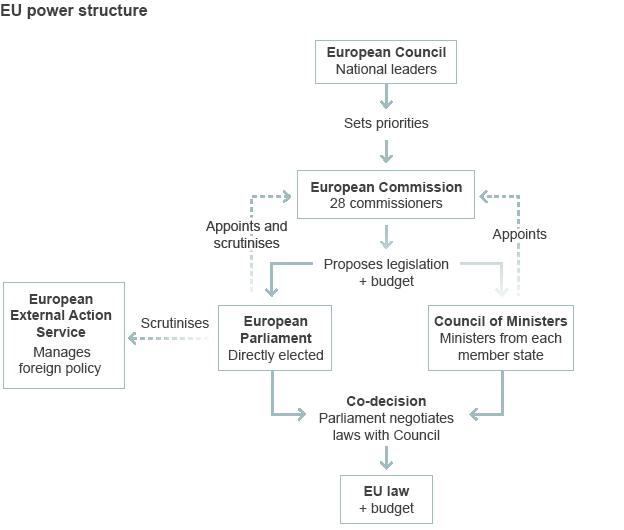
- Published27 August 2014
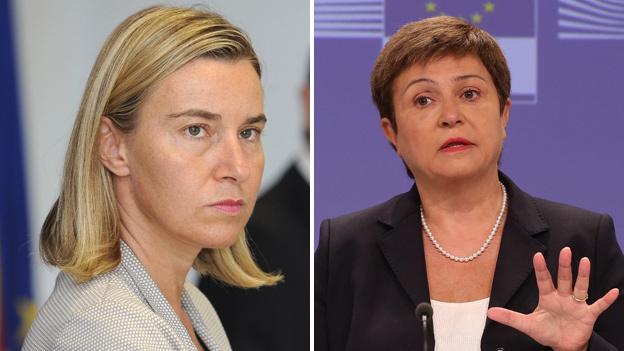
- Published26 August 2014
